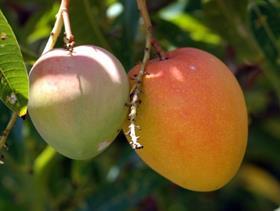
The EU has upheld its ban on Indian mangoes and four other vegetables, voted in by the European Commission (EC) on 26 March.
Indian government officials took up the issue at the India-EU Sanitary and Phytosanitary and Technical Barriers to Trade working group meeting in Brussels last week (2 April). But the EU did not agree to withdraw its safeguard measures and upheld the ban, EC press and media officer for health Aikaterini Apostola told Fruitnet.
She said the following steps were agreed at the meeting: India will correct control deficiencies to ensure commodities exported to the EU fulfil EU phytosanitary import requirements; India will send guarantees on the correct implementation of these measures; the EU's Food and Veterinary Office (FVO) will verify the good implementation of these guarantees on-the-spot at the end of 2014.
A decision on the lifting of the ban would depend on the outcome of the FVO audit, she said.
Rumours were circulating that the Indian authorities had convinced the EC to lift its ban as early as next month.
Some sources in India also claimed the EU ban was politically-motivated and designed to put pressure on India to ease its new import restrictions on items like steel, tyres and electronics.By putting India on the back-foot on the issue of fruits and vegetable exports, the EU may be hoping to gain some leeway in the areas of its interest, one official said.
However, the EC maintains the ban was imposed to safe-guard European agriculture from damaging pests.
In response to the speculation, Apostola said: “Our position hasn’t changed since the announcement was made. The rationale behind the emergency measures is to tackle the significant shortcomings in the phytosanitary certification system of such products exported to the EU. This decision had to be taken due to a high number of such consignments being intercepted at arrival in the EU with quarantine pests, mainly insects, like non-European fruit flies. The potential introduction of new pests could pose a threat to EU agriculture and production.”
Indian exporters said they are baffled and dismayed by the ban, especially since an improved certification system was due to be implemented from 1 April in response to EU phytosanitary concerns.
“When we had agreed to put up a system of phytosanitary inspection from April 1, they should have waited to see how the new system worked,” a source told the Business Line.
Exporters had been advised to route all fresh fruits and vegetable shipments to EU only through APEDA-recognised pack houses from 1 April, where inspections, examinations and testing of export consignments would be conducted under the supervision of plant quarantine personnel.
“It is ironic that the EU ban has come at a time when inspection measures have improved,” a source told Fruitnet.
Mango exports to EU were estimated at 4,000 tonnes in 2012/13, according the Hindu Business Line.



